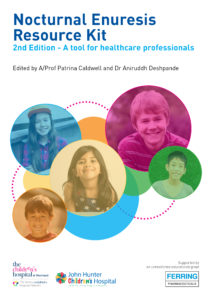
Wetting the bed, also known as “nocturnal enuresis”, can be a debilitating condition for many children.
Often trivialised, and frequently considered a condition that afflicts only young children, the latest figures reveal nocturnal enuresis affects one-in-five Australian children aged five, one-in-10 children aged 10, and between one-in-30 to one-in-100 teenagers aged between 15-to-17 years.
For children and teenagers who do wet the bed, the condition can profoundly impact their emotional and psychological wellbeing and social development.
While many of us tend to dismiss bedwetting as a behaviour that our children will simply outgrow, the condition can result in strong feelings of shame, guilt and failure for a child, and a sense of being different to others.
May 29, 2018 marks World Bedwetting Day – an international day dedicated to informing the global community that bedwetting is no one’s fault, and is rather, a common medical condition that can be treated.
The focus of this year’s campaign is on bedwetting not having a psychological cause, but more often than not, being caused by the over-production of urine during the night, and an inability to wake up, or a reduced bladder capacity.
The causes of bedwetting include:
- Difficulty waking up;
- Urine over-production during sleep; and
- Poor bladder function.
There are two types of nocturnal enuresis:
- Mono-symptomatic enuresis – when bedwetting is an isolated symptom.
- Non-mono-symptomatic enuresis – when other symptoms are associated with bedwetting.
Family history plays an important role in bedwetting. The risk of bedwetting increases if a child’s parents wet the bed, particularly the child’s mother. In fact, two-in-three children who wet the bed report having a relative who too, experienced the condition.
Sleep disorders also elevate a child’s risk for bedwetting. Snoring and sleep apnoea can affect a child’s ability to wake up at night to pass urine. Children who wet the bed have a higher prevalence of sleep disorders, such as obstructive sleep apnoea, frequent waking, sleep disordered breathing, parasomnias and sleep-related movement disorders. These children also experience poorer sleep quality, fragmented sleep and higher rates of daytime sleepiness compared to their non-bedwetting peers.
Around one-in-four children who wet the bed are constipated. Should your child have a dysfunctional bowel, this could be a contributing factor toward bedwetting.
Attention deficit hyperactivity disorder, or being on the autism spectrum, also increases a child’s likelihood of bedwetting.
Should you wish to learn more about childhood bedwetting, visit your GP and head to www.neresourcekit.com.au to download the new Nocturnal Enuresis Resource Kit.
